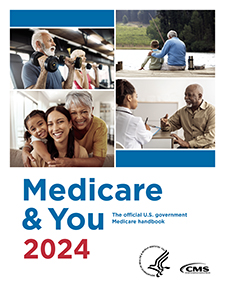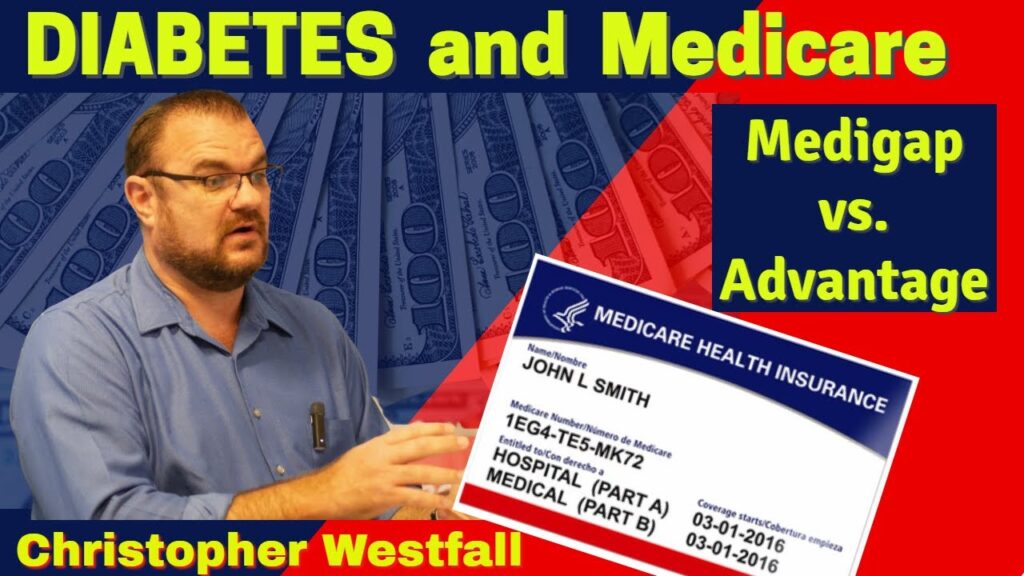Medicare Advantage Disadvantages: Understanding the Downsides of Medicare Advantage Plans
Introduction
Medicare Advantage plans, also known as Medicare Part C, offer an alternative way to receive Medicare benefits. While these plans come with several advantages, it's important to be aware of their potential disadvantages. In this article, we will explore the Medicare Advantage disadvantages, shedding light on the drawbacks associated with these plans.
Medicare Advantage Disadvantages
Medicare Advantage plans, despite their benefits, may have some downsides that beneficiaries should consider before enrolling. Let's take a closer look at the disadvantages of Medicare Advantage plans:
1. Limited Network of Providers
Medicare Advantage plans typically have a network of preferred providers. This means that you may need to seek healthcare services from doctors, hospitals, and specialists within the plan's network. Going out-of-network may result in higher out-of-pocket costs or may not be covered at all.
2. Lack of Nationwide Coverage
Unlike Original Medicare, which provides coverage nationwide, Medicare Advantage plans often have limited geographic coverage. If you frequently travel or spend time in different states, it's important to check whether your plan will cover you outside its designated service area.
3. Potential for Higher Out-of-Pocket Costs
Medicare Advantage plans often require beneficiaries to pay certain cost-sharing amounts, such as copayments and coinsurance, for services rendered. These out-of-pocket costs can add up, particularly if you require frequent medical care or specialized treatments.
4. Prior Authorization Requirements
Some Medicare Advantage plans may require prior authorization for certain medical procedures, treatments, or medications. This means that you would need approval from the plan before receiving the service, which can introduce delays and additional administrative steps.
5. Limited Prescription Drug Formularies
Many Medicare Advantage plans include prescription drug coverage, known as Medicare Part D. However, these plans may have limited formularies that only cover specific medications. If you take medications that are not included in your plan's formulary, you may need to pay the full cost out-of-pocket.
6. Potential Disruption of Doctor-Patient Relationships
When you enroll in a Medicare Advantage plan, you may need to change doctors if your current healthcare providers are not part of the plan's network. This can be particularly challenging if you have established a trusting relationship with your doctors and specialists over the years.
7. Difficulty Comparing Plans
Medicare Advantage plans can vary significantly in terms of coverage, costs, and benefits. Comparing these plans can be complex and time-consuming, especially considering the frequent changes in plan offerings from year to year.
8. Risk of Plan Discontinuation
Medicare Advantage plans are offered by private insurance companies, and these companies can choose to discontinue or modify their plans from year to year. If your plan is discontinued, you would need to find a new plan during the next Medicare Annual Enrollment Period.
9. Extra Costs for Non-Essential Services
While Original Medicare covers medically necessary services, Medicare Advantage plans may offer additional benefits such as dental, vision, or hearing coverage. However, these added benefits may come with additional costs, either through higher premiums or increased out-of-pocket expenses.
10. Potential for Coverage Limitations
Medicare Advantage plans may have limitations on certain services or treatments. For example, they may impose restrictions on the number of physical therapy sessions covered or limit the frequency of certain diagnostic tests.
11. Difficulty Accessing Specialists
Specialist care may be more challenging to access under a Medicare Advantage plan. Some plans require referrals from primary care physicians to see a specialist, which can introduce delays and additional administrative steps.
12. Risk of Plan Non-Renewal
Similar to discontinuation, Medicare Advantage plans can also choose not to renew their contracts with Medicare. If your plan is not renewed, you would need to find an alternative plan during the next Medicare Annual Enrollment Period.
13. Inflexible Enrollment Periods
Medicare Advantage plans have specific enrollment periods, such as the Initial Enrollment Period and the Annual Enrollment Period. Missing these enrollment windows may limit your options or result in a gap in coverage.
14. Potential for Disenrollment Restrictions
Once enrolled in a Medicare Advantage plan, beneficiaries may face limitations on changing plans or returning to Original Medicare. It's important to carefully consider your healthcare needs and plan options before making a decision.
15. Limited Coverage for Certain Medical Facilities
Not all healthcare facilities, such as specialized hospitals or renowned medical centers, may be part of a Medicare Advantage plan's network. This can restrict your choices when seeking care from specific facilities.
16. Complexity of Plan Rules and Regulations
Medicare Advantage plans often have their own set of rules and regulations that beneficiaries must navigate. Understanding these complexities can be challenging, particularly for individuals who are not familiar with health insurance terminology and processes.
17. Potential Loss of Access to Medigap Plans
If you choose to enroll in a Medicare Advantage plan, you will not be able to purchase a Medigap policy. Medigap plans help cover out-of-pocket costs associated with Original Medicare, providing additional financial protection.
18. Lack of Standardization Across Plans
Medicare Advantage plans can differ significantly from one another in terms of coverage, cost-sharing, and network providers. This lack of standardization can make it harder to compare and select the best plan for your specific needs.
19. Limited Flexibility for Snowbirds
If you are someone who spends part of the year in a different state, a Medicare Advantage plan may not provide the flexibility you need. Some plans may only cover emergency care outside their service area, which may not be suitable for individuals with seasonal residency.
20. Potential for Plan Changes Throughout the Year
Unlike Original Medicare, which remains relatively stable, Medicare Advantage plans can modify their coverage, network, and costs during the year. These changes can impact your access to services and the affordability of your healthcare.
21. Difficulty in Dispute Resolution
If you have a disagreement or dispute with your Medicare Advantage plan, resolving the issue can be challenging. Navigating the appeals process and communicating with the insurance company may require time and effort.
22. Limited Coverage During Travel Abroad
Medicare Advantage plans usually do not provide coverage for healthcare services received outside the United States. If you frequently travel internationally or reside abroad, it's important to explore other options for healthcare coverage during your time outside the country.
23. Risk of Plan Marketing Misinformation
Medicare Advantage plans may be marketed heavily, and the information provided by insurance companies may not always be entirely accurate or clear. It's crucial to conduct thorough research and verify the details of a plan before making a decision.
24. Potential for Higher Administrative Burden
Medicare Advantage plans often require beneficiaries to navigate various administrative tasks, such as obtaining prior authorizations, coordinating care between providers, and understanding plan-specific guidelines. This increased administrative burden can be overwhelming for some individuals.
25. Impact on Low-Income Individuals
While Medicare Advantage plans are required to provide at least the same level of coverage as Original Medicare, certain low-income individuals may have better access to financial assistance through programs like Medicaid if they stick with Original Medicare.
FAQs about Medicare Advantage Disadvantages
Q1: Are Medicare Advantage plans better than Original Medicare?
A1: Whether Medicare Advantage plans are better than Original Medicare depends on your individual needs and preferences. While Medicare Advantage plans offer additional benefits and may have lower premiums, they also come with potential disadvantages.
Q2: Can I switch from a Medicare Advantage plan to Original Medicare?
A2: Yes, you can switch from a Medicare Advantage plan to Original Medicare during the Medicare Annual Enrollment Period (October 15 – December 7) or the Medicare Advantage Open Enrollment Period (January 1 – March 31).
Q3: Can I have both a Medicare Advantage plan and a Medigap policy?
A3: No, it's not possible to have both a Medicare Advantage plan and a Medigap policy. Medigap policies only work with Original Medicare.
Q4: Can Medicare Advantage plans deny coverage for pre-existing conditions?
A4: No, Medicare Advantage plans cannot deny coverage based on pre-existing conditions. However, they can impose waiting periods for certain treatments or services.
Q5: Are all Medicare Advantage plans the same?
A5: No, Medicare Advantage plans vary in terms of coverage, costs, network providers, and additional benefits. It's important to review and compare different plans to find the one that suits your needs.
Q6: Can I join a Medicare Advantage plan if I have end-stage renal disease (ESRD)?
A6: In most cases, individuals with end-stage renal disease (ESRD) are not eligible to enroll in a Medicare Advantage plan. However, there are certain exceptions and special circumstances.
Conclusion
While Medicare Advantage plans offer several advantages, it's essential to be aware of their potential disadvantages. From limited provider networks to higher out-of-pocket costs, understanding these drawbacks can help you make an informed decision about your healthcare coverage. Remember to carefully review and compare different plans before enrolling to ensure they align with your specific needs and preferences.e
We help compare all plan types here at the Senior Savings Network.
We can be reached at 1-800-729-9590.





